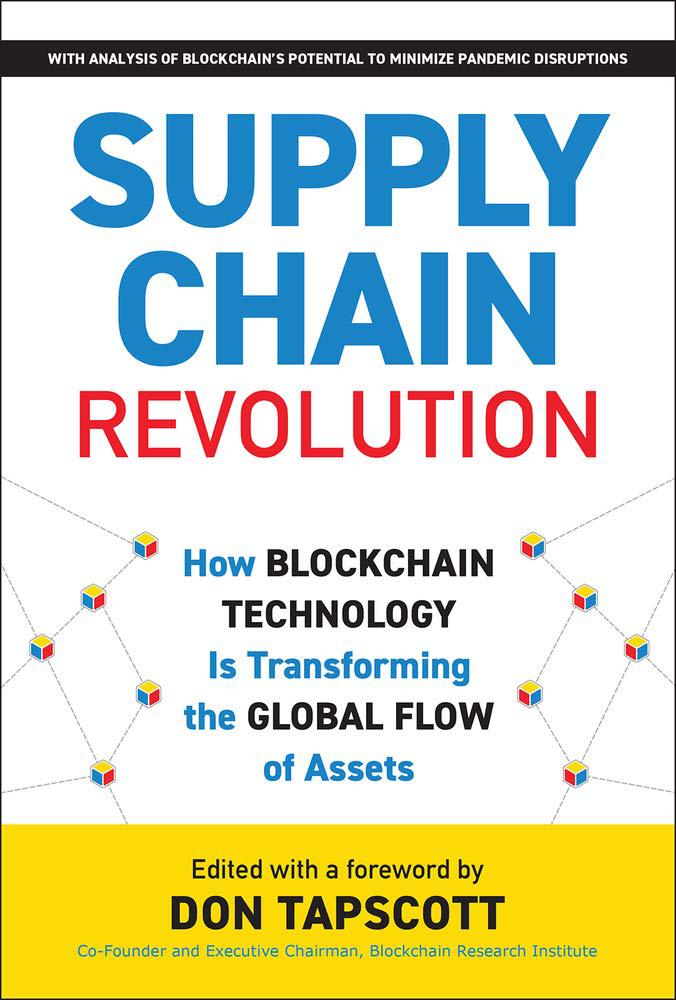May 19, 2022 - As financial markets have taken a hit in recent weeks, cryptocurrencies have especially been under fire since their values appear to have devalued faster than traditional assets. In this context, some have dismissed cryptocurrencies as a speculative investment; however, the underlying blockchain technology upon which many of them are based should not be conflated with cryptocurrency and its perceived flaws.
Worldwide, companies have experienced widespread sourcing disruptions since the start of the pandemic, and increasingly, actors along the supply chain are embracing blockchain and similar technologies in order to facilitate compliance, transparency, and efficiency in cross-border transactions and to alleviate some of the ongoing disruptions.
Blockchain overview
Register now for FREE unlimited access to Reuters.com
Blockchain technology was created in 1991 by a group of researchers and was originally intended to timestamp digital documents so that it is not possible to backdate or otherwise alter them (much like a notary). A "block" denotes several transactional records that are chained together and connected to thousands of computers. This distributable ledger provides a tamper-proof history of information flows.
Once created, every transaction is subject to confirmation by a group of people taking part in the ecosystem — a category of (competing) participants called "miners" or "nodes" — before being paired up with the previous entry in a manner that ensures the consistency of all the existing data on the chain of digital blocks. The "miners" work on transactions in order to export the information into a virtual block with limited recording capacity, whereas the "nodes" verify all the transactions by referring back to each of the prior blocks.
Blockchain is characterized by its decentralized structure within a certain computerized network; no single entity, whether inside or outside the network, has the authority to administer the network. The technology allows for buyers, manufacturers, lenders, logistics companies, and government agencies to quickly and securely share verifiable information. These attributes make blockchain well-suited to supply chain management through authentication and real-time end-to-end tracking of products and cargo.
The technology can also help make trade less paper-intensive, as well as more compliant, inclusive, and socially responsible, thereby reducing costs. This is especially good for small businesses, which are disproportionately affected by red tape at the border, and for government agencies seeking to improve reliability and facilitate trade.
Blockchain is divided into two types: public and private. A private (permissioned) blockchain only allows the entry of verified users. A public (permissionless) blockchain is a network open to anyone to participate in a consensus process that the platform uses to validate transactions — like Bitcoin.
In a private sector blockchain application, if a seller (manufacturer) and a buyer (importer) agree on a certain trade transaction internationally, the seller needs to be sure that the buyer will fulfill its payment liabilities, while the buyer wants to pay as late as possible and only when the seller's liabilities are discharged in full. Both parties could probably achieve their respective objectives by means of smart contracts embodied in the blockchain application.
With distributed ledgers, they will be allowed to see the same information regarding the status of consignments simultaneously. Therefore, it will be easier for them (even without a relationship of mutual trust) to directly communicate for prompt and timely reconciliation in case of issues with shipping (e.g., deficiency of ordered goods to be delivered). By including banks, shipping companies, and freight carriers, sellers are able to show that these parties have agreed on the transaction for the ordered goods, thereby giving the buyers the assurance that the shipments will arrive in due course.
Emerging blockchain applications

Blockchain can also be used for customs compliance and to minimize sourcing risk. When blockchain record-keeping is used, assets such as inventory, orders, loans, packing lists, and bills of lading are given unique identifiers. Additionally, participants in the blockchain are assigned unique digital signatures, which they use to sign the blocks they add to the blockchain.
Every step of the transaction is then recorded on the blockchain as a transfer of the corresponding data from one supply chain participant to the next. This allows an importer to track the product from factory floor to the port and shipment for export, thereby ensuring the correct country of origin and minimizing the risk of illegal transshipment, circumvention, or evasion of duties.
Additionally, blockchain can help minimize the risk of labor exploitation and other human rights violations along the supply chain. The Biden administration has made workers' rights a key part of its trade policy. For example, last December, President Biden signed into law the Uyghur Forced Labor Prevention Act (UFLPA), which is intended to counter China's alleged human rights abuses in the Xinjiang Uyghur Autonomous Region (XUAR).
Similarly, U.S. Customs and Border Protection (CBP) has increased its enforcement through Withhold and Release Orders (WROs), which authorize CBP to stop a shipment suspected of being made with forced labor and allow for its release only when the importer proves otherwise. The number of WROs has doubled in the last five years, affecting products such as apparel, cotton, seafood, and other goods.
Blockchain can play a role in ensuring responsible and ethical sourcing by providing supply chain transparency, reliability, traceability, and efficiency through the automation of data collection. This can help facilitate the tracking of materials and goods from source to end-use and provide companies with access to real-time, verifiable data that can be crucial to the success of their Environmental, Social, and Governance (ESG) programs.
Companies are evaluating the potential usefulness of blockchain in determining and reporting their responsibility performance on social issues, such as whether goods are sourced ethically and in compliance with established standards and regulations. Similarly, the World Wildlife Fund's bait-to-plate program uses radio-frequency identification (RFID) tags, quick response (QR) codes, and blockchain technology to allow customers to track the journey of the seafood they consume. This data also supports retailers in demonstrating their performance related to ESG targets, such as the implementation of sustainable seafood purchasing policies.
On the governmental level, customs authorities around the globe are increasingly exploring the potential for blockchain to achieve greater efficiency, transaction transparency, and reliability in the areas of risk management and trade facilitation. For example, in 2018, CBP conducted a study on the application of blockchain in the submission process for entry summary declarations under at the time the North American Free Trade Agreement (NAFTA) and Central America Free Trade Agreement (CAFTA).
The study found that the use of blockchain improved communications between CBP and traders, improved documentation of receipt, and expedited processing, while eliminating manual documentation requirements and duplicative data entry.
Limitations and potential
While blockchain can contribute to transparency, reliability, traceability, and efficiency, it is not a panacea. Within the context of monitoring for potential labor exploitation, one potential limitation is that blockchain places a priority on the tracing of the product itself rather than on addressing the labor conditions involved in the manufacturing process.
Additionally, the data that is traced through the supply chain may be fraudulent from the outset — i.e., those entering the data may input fraudulent information. So, while blockchain can confirm that a commodity is "clean" because the data along the supply chain reads as such, there need to be certain safeguards in place to ensure the data is true and accurate. On-site inspections and/or third-party certifications may aid in remedying this deficiency and ensuring reliability of the data.
This represents just one example of the extent to which adoption of blockchain technology in the supply chain is still in its infancy. Some obstacles to deployment include lack of expertise by users, need for standards, energy consumption, and existing legacy systems.
Based on a recent World Trade Organization survey of customs authorities, however, many are reasonably optimistic about blockchain's potential and opportunities for collaboration with trade stakeholders to improve transparency and lower transaction costs. Global supply chain disruptions have always been part of international trade and are here to stay, but wider adoption of blockchain could make them less painful in the foreseeable future.
Mark Ludwikowski is a regular contributing columnist on international trade for Reuters Legal News and Westlaw Today.
Register now for FREE unlimited access to Reuters.com
Opinions expressed are those of the author. They do not reflect the views of Reuters News, which, under the Trust Principles, is committed to integrity, independence, and freedom from bias. Westlaw Today is owned by Thomson Reuters and operates independently of Reuters News.Mark LudwikowskiMark Ludwikowski is a member of Clark Hill PLC and the leader of its International Trade Practice, based in the Washington, D.C., office. He represents corporate and government clients in trade remedy proceedings and customs matters in helping them maintain access to U.S. and foreign markets for their goods and services. He can be reached at mludwikowski@clarkhill.com.
Maram SalaheldinMaram Salaheldin is an associate in Clark Hill PLC's Environmental & Natural Resources and International Trade Practices, based in the Washington, D.C., office. She counsels clients on international environmental, health, safety, and sustainability issues, including those related to their global supply chains. She can be reached at msalaheldin@clarkhill.com.




